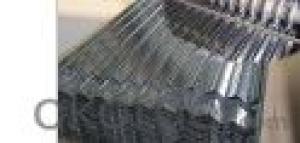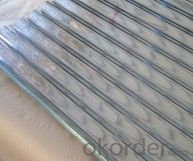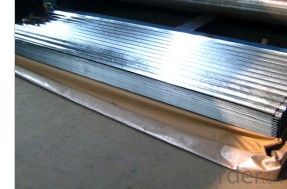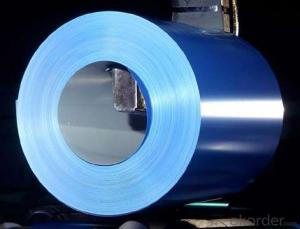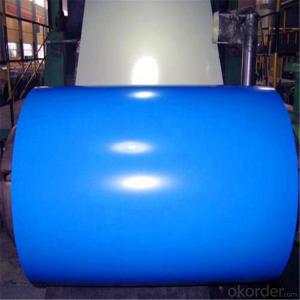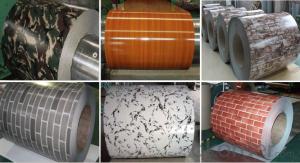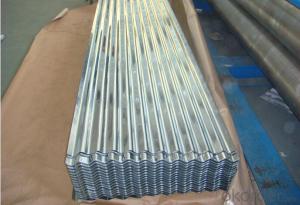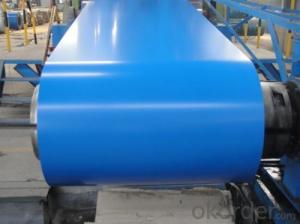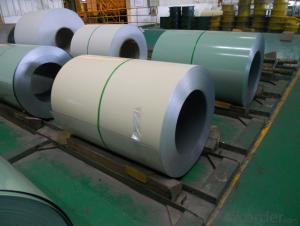BEST QUALITY CORRUGATED GALVANIZED STEEL SHEET
- Loading Port:
- China Main Port
- Payment Terms:
- TT OR LC
- Min Order Qty:
- -
- Supply Capability:
- -
OKorder Service Pledge
Quality Product, Order Online Tracking, Timely Delivery
OKorder Financial Service
Credit Rating, Credit Services, Credit Purchasing
You Might Also Like
| Thickness | 0.13mm-1.2mm |
| Width | 600mm-1250mm (AC) |
| Zinc coating | 50g-200g/m2 |
| Length | 1700mm-4000mm as your required |
| Tolerance | width: +/-5mm, thickness: +/-0.02mm |
| Spangle | regular spangle, big spangle, minimized spangle |
| | |
| Wave height | 18mm or as your required |
| Wave number | from 8 to 12 |
| Type | steel plate |
| Weight of each package | about 3mt |
| Technology | cold rolled |
| Surface treatment | galvanized, chromated, bright finished, unoiled(oiled) |
| Material | SGCC, SGCH |
| Standard | ASTM, JIS, DIN, GB |
| Packing | export standard packing, packed with moisture resistant paper and metal wrapping, securely tied for export, on metal skids |
- Q: What are the industries that consume the most steel?
- I'm guessing manufacturing
- Q: How do steel coils contribute to fire resistance in buildings?
- Steel coils contribute to fire resistance in buildings by providing structural integrity and stability. The use of steel coils in construction helps in preventing the collapse of buildings during a fire. Steel, being a non-combustible material, does not contribute to the spread of fire, allowing occupants more time to evacuate safely. Moreover, steel coils have high melting points, which means they can withstand intense heat for a longer duration before losing their strength. This property helps in slowing down the fire's progression and gives firefighters more time to control the blaze.
- Q: 420 440 1045 or 1065 ive bought knifes with these steel grades and i want to know which one is better.
- SAE 440 is the best. Classified as high grade cutlery steel. There are various grades of 440: A, B, C, and F. 440 A is the most stain resistant while 440 C has the most carbon and can achieve the highest hardness (Best edge Retention). SAE 440 Chemistry: 16 - 18% Chromium, 0.60 - 1.2% Carbon, 0.75% Molybdenum. SAE 420 is pretty good. Classified as cutlery steel, it is a stain resistant grade but has less chromium and significantly less carbon than SAE 440. SAE 420 Chemistry: 12 - 14% Chromium, 0.15% Carbon (min), 0 Molybdenum Chromium is what makes the steel corrosion resistant. It also adds toughness. Molybdenum adds extra corrosion resistance and adds hardenability. So you can see by chemical components that 440 is highest quality although that also means more cost. 1045 and 1065 are low quality steels and you should probably never use them for a knife. The 1 indicates plain carbon steel with little other alloying elements. The last two digits indicate how much carbon is in the steel. 1045 has 0.45% carbon, mid-range hardenability. 1065 has 0.65% carbon, high hardenability. So if I had to choose I would choose 1065 over 1045 but the difference isn't that noticeable. Everything I said here assumes they have all had the optimum Quench and Temper heat-treatment for their chemistry grade.
- Q: What are the different types of steel processing equipment for coils?
- There are several types of steel processing equipment used for coils, including slitting lines, cut-to-length lines, blanking lines, and coil-to-coil lines. Slitting lines are used to slit wide steel coils into narrower strips, while cut-to-length lines are used to cut coils into specific lengths. Blanking lines are used to cut shapes out of coils, and coil-to-coil lines are used to transfer coils from one processing stage to another.
- Q: For my homework we have to fill out a table, but I cannot find some basic uses of these types of steel anywhere:Low carbon steel (iron mixed with lt;0.25% carbon)High carbon steel (iron mixed with lt;1.5% carbon)Stainless steel (iron mixed with nickle an chromium)Titanium steel (iron mixed with titanium)Manganese steel (iron mixed with manganese) Thanks :)
- Low okorder / You say you cannot find there uses anywhere. These all came up using the simplest of web searches. You really need to have a word with your IT teacher as clearly you are not doing basic searches properly.
- Q: What is the difference between hot-rolled and cold-rolled steel coils?
- Hot-rolled steel coils are produced by heating the steel above its recrystallization temperature, resulting in a more malleable and less precise product. On the other hand, cold-rolled steel coils are processed at room temperature, yielding a stronger, more precise, and smoother finish.
- Q: How do steel coil manufacturers handle international shipping requirements?
- Steel coil manufacturers handle international shipping requirements by ensuring that their products meet the necessary standards and regulations for transportation. This includes adhering to specific packaging requirements, such as utilizing appropriate containers and securing the coils to prevent damage during transit. To meet international shipping requirements, manufacturers also need to comply with customs regulations and documentation. They must prepare accurate and complete paperwork, including commercial invoices, packing lists, and bills of lading, to facilitate smooth customs clearance procedures. Moreover, steel coil manufacturers often work with freight forwarders or shipping agents who specialize in international logistics. These professionals have extensive knowledge of shipping regulations, routes, and carriers, and can assist in arranging transportation, negotiating freight rates, and handling all necessary paperwork. Manufacturers may also opt to use intermodal transportation, which involves utilizing multiple modes of transportation, such as trucks, trains, and ships, to transport their steel coils. This allows for more efficient and cost-effective shipping, especially for long-distance or international shipments. Additionally, steel coil manufacturers may consider insurance coverage to protect their products during transit. Insurance can provide financial compensation in case of any damage, loss, or delays during the shipping process. Overall, steel coil manufacturers handle international shipping requirements through careful planning, compliance with regulations, collaboration with experts in logistics, and consideration of various transportation options. This helps ensure that their products reach international destinations safely, on time, and in compliance with all relevant regulations.
- Q: How are steel coils inspected?
- Steel coils are inspected through various methods such as visual inspection, dimensional measurement, and non-destructive testing techniques. Visual inspection involves the examination of the coils for any surface defects, such as scratches, dents, or rust. Dimensional measurement ensures that the coils meet the required specifications in terms of thickness, width, and diameter. Non-destructive testing techniques like ultrasonic testing, magnetic particle inspection, and eddy current testing are used to detect any internal defects or discontinuities in the steel coils without causing any damage to the material. These comprehensive inspection methods ensure the quality and integrity of steel coils before they are used in various industries.
- Q: Is there any way to melt steel without the intense heat of a blast furnace?
- How To Melt Steel
- Q: A 100 kg solid steel ball with a radius of 5 m is being spun on ice with an angular velocity of 5 rev/s pointed into the ice (clockwise rotation when viewed from above).A student shoots a 10 kg marble at the steel ball. The marble hits the ball along its side as shown with an initial velocity of 5 m/s to the left. If, right after the collision, the final velocity of the marble is 2.5 m/s to the left, what is the angular velocity of the steel ball after the collision?
- You need to do conservation of angular momentum about the steel ball's axis. Angular momentum = I.ω The steel ball's initial ω = 5 rev/s = 5*2pi rad/s = 31.4 rad/s The steel ball's moment of inertia I = (2/5)*m*r^2 = 40*25 kg.m^2 = 1000 kg.m^2 The marble's initial ω = v / r where r is the perpendicular distance from the steel ball's axis You need to look at the diagram for this. The marble's I about the steel ball's axis is I = m*r^2 where r is the same as above. (marble is treated as a point mass). Then work out the total initial ang. momentum = final ang. momentum and solve for ω...
Send your message to us
BEST QUALITY CORRUGATED GALVANIZED STEEL SHEET
- Loading Port:
- China Main Port
- Payment Terms:
- TT OR LC
- Min Order Qty:
- -
- Supply Capability:
- -
OKorder Service Pledge
Quality Product, Order Online Tracking, Timely Delivery
OKorder Financial Service
Credit Rating, Credit Services, Credit Purchasing
Similar products
Hot products
Hot Searches
Related keywords
